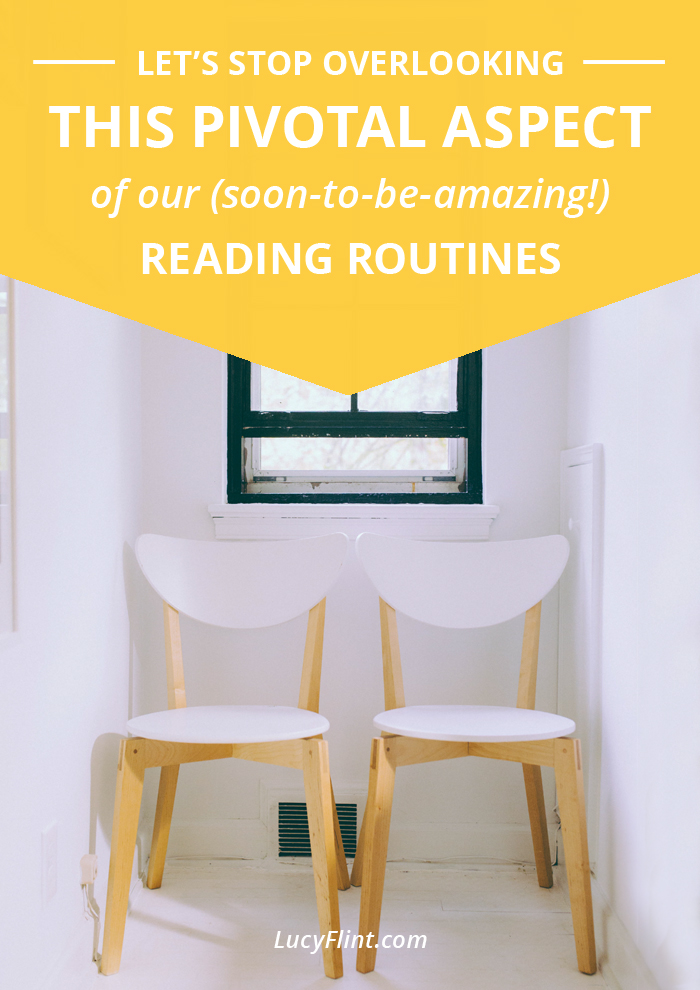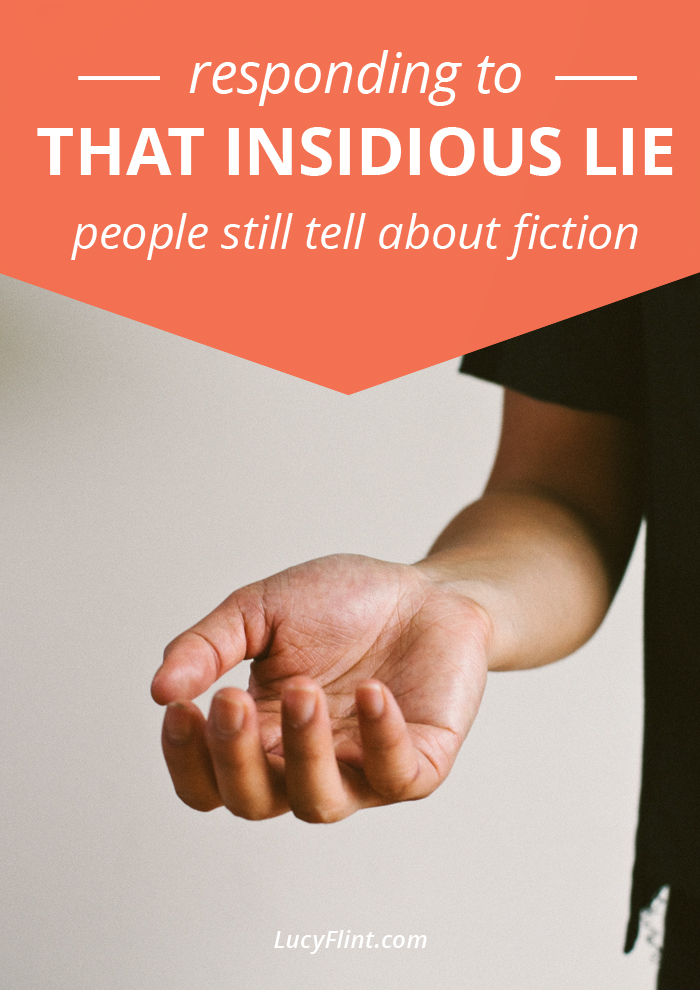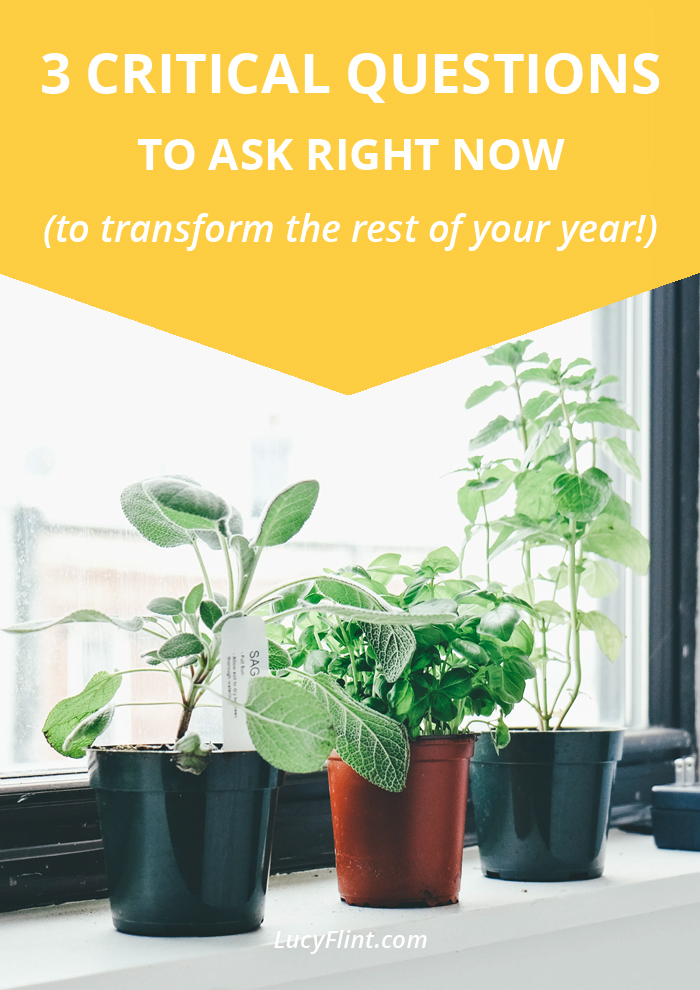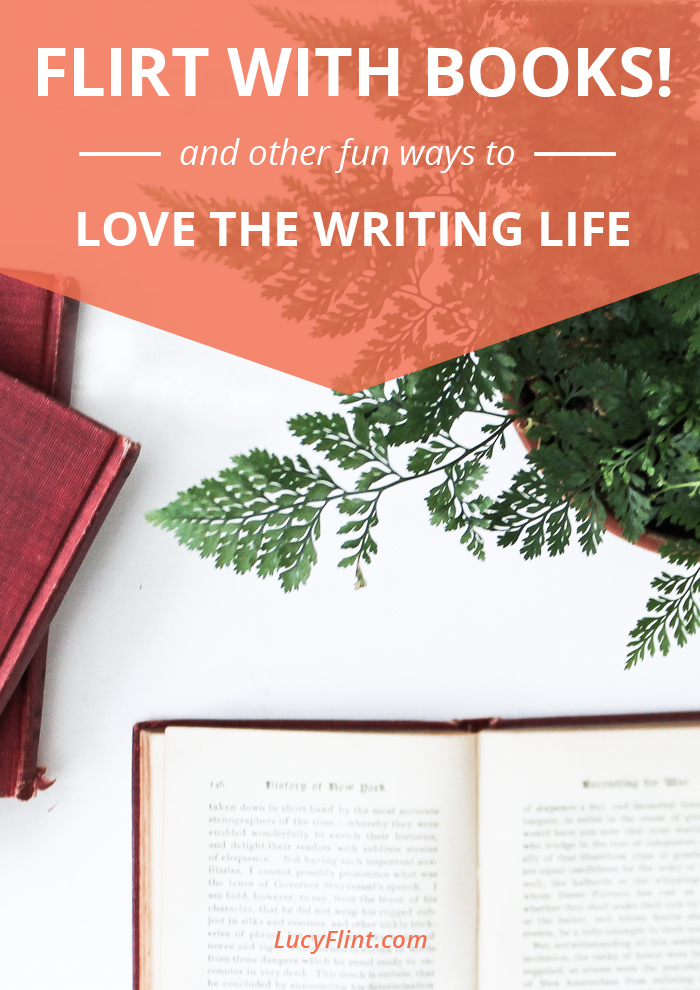Eight Pieces of Writing Life Wisdom I Received as a Beginner (And They're Still Schooling Me, Eleven Years Later!)
/I tumbled into the writing life with a lot of ideas and a lot of advice.
Luckily for me, I wrote all that early thinking down as one of my final class projects before graduating from college: a long essay spelling out what I hoped and expected the writing life to be.
And at the beginning of this month—eleven years after writing it—I dug out that paper and reread it. After all this time, I was curious. I wanted to sift through the mix of hopes and fears that filled my transition from the student life to the writing life, and see what I thought I was getting myself into!
Some of my expectations were pretty ridiculous—even damaging. I'm so relieved to have chucked those old beliefs and to have learned a better way forward.
Today, I'm looking at the other half of the paper—at the best tips and advice that I compiled after interviewing writers and professors, and reading a ton of articles and writing books before taking the plunge.
Because I was surprised: there was some advice in there that I'd forgotten, some tips that I'd discarded without thinking, and some points that could breathe new life into my writing practice.
Who would have thought??
So I've pulled the best of it together to share with you: the solid stuff that still rings true. This is what I want to keep applying to my writing days.
Read on for some of the best, most lasting advice about the writing life!
1. Love of the work = the very best fuel. Eleven years ago, I had just read Julia Cameron's incredible book The Artist's Way for the first time. And, I'm ashamed to say, I totally blew her off.
So I casually wrote in my paper:
Julia Cameron warns that discipline can be seductive and counter-productive. One danger for artists is over-focusing on the discipline rather than their love of the work.
I cheerfully scribbled that down, and then went off to do precisely that: I overfocused on discipline. For, um, eight years.
Instead of focusing on my love of the work. Love? What did love have to do with it? I was used to doing assignments and handling deadlines—who cares about love?
Better to hold myself accountable for every single five-minute period of my life, and rate my output with pass/fail grades all the way, right?
Hahahaha. Nope.
It's taken a long time, but I am finally, finally applying Cameron's excellent advice to my writing life. I'm aiming at love and enthusiasm in my work.
How about you? Being super disciplined is all the rage right now, and it definitely has its points ... but it can also backfire.
Let's bring discipline back into balance with enthusiasm and love of writing.
2. Long live the daily brain-dump! Another brilliant piece of advice from The Artist's Way is Julia Cameron's classic practice of writing morning pages: three pages of stream-of-consciousness, written longhand, first thing in the morning.
I tried them for the first month after graduation. With a lot of griping. And then I decided "they did not work."
But I'd forgotten their whole purpose: to just clear your mind first thing in the morning. They aren't supposed to be nice. They aren't supposed to even be readable. They can be as whiny and grumpy as you feel: that's their job. To just catch what's in your mind.
Now that I've relearned what they're for, and now that I've been practicing them for a year, I can't not do them. If I skip a day, I feel more mentally cluttered. I get off-balance.
They're every bit as essential to my mental hygiene as brushing teeth first thing is to my mouth.
Have you experimented with adding morning pages to your days? Even if you've given them up like I did, they're worth trying again. I promise!
If three pages feels daunting, try starting your day with at least one, or even half of one. Do them simply to do them, to clear your mind.
3. Our MAIN job might not even be actually writing. So, fair warning: rereading this forgotten piece of advice blew me away. And it's been seriously messing with my mind ever since.
In the paper, I quote from an interview with Gary Paulsen (anyone else grow up adoring Hatchet?), in which he said:
You can't learn to write in a workshop. You can't learn in school or through a class. Writing is not going to help you learn to write. ... You have to read, and I mean three books a day. ... Reading is the thing that will teach you. Make it an occupation.
Holy moly! Can we just, uh, take a moment? Because he just said "writing is not going to help you learn to write," and I'm reeling at that.
Because, well, it kinda makes sense.
I don't know about you or what your writing journey has looked like, but it's so easy, embarrassingly easy, for me to downgrade the importance of reading fiction.
Over the past decade, I've been writing and writing and writing, and yes, it is gradually getting better, but I'm wondering if some of my rather slow progress is because I've been reading-starved?
Possibly?
Rereading this quote re-convinced me. Or, actually, it kicked me in the pants: I need to turn the dial way, way up on my reading life.
"Make it an occupation," he said. Ooooh.
How's your reading life been lately, my friend? Are you, like me, a bit under-fed in that area? Let's dive in, big time, this summer! To a HUGE stack of books.
4. Respond to everything you read. As far as reading goes, one of my professors recommended that I keep a kind of Reading Journal.
She said that I needed a place to respond to what I read—where I could talk back, critique, delight, and explore.
This is one of the pieces of advice I actually stuck with, I'm happy to say. As I read (not as fast or as much as Gary Paulsen recommended, but I did still read), I took plenty of notes on lines I enjoyed, on what didn't seem to work, and on the overall feel of the book.
I compiled all these notes in a series of Word documents, in a huge and ever-growing folder on my computer. All very tidy, searchable, cross-referenceable.
But rereading that line in the paper, I suddenly have this wistful wish that I'd kept it in a physical journal. Something that feels more warm, more personal, instead of the lab-note feeling of my digital files.
Hmmm. Maybe a change is in order.
Tell me friends, do you take notes on what you read? Do you ever come back to those notes? How do you organize them?
And are you for digital or analog reading journals?
5. Make good self-management a top priority. One thing that I was rather accurately worried about was burnout.
In that paper, I wrote,
I routinely hit a point in each semester when it feels as though I can't go on: I become very sure that every assignment will fall lifeless to the ground, that my GPA will plummet, and that there will be no recovery, not this time. I'm afraid that if I'm my own boss, I won't be able to pick myself up and keep on keeping on.
I always knew that managing myself well would be a key part of the writing life ... but I didn't really know what that looked like for a long time. It's taken a while, but I'm slowly learning to be much more kind to myself, and to trust my instincts (instead of automatically assuming I'm lazy).
This is why I want to keep asking questions about how to manage well. What does it look like to be a good boss, a kind boss, a wise boss? I never want to stop learning about that.
How do you feel about your own self-management style? Where do you most want to grow as a boss?
Let's keep working toward sustainable creativity and kind productivity. Let's keep learning how to manage ourselves well!
6. We are not machines. When I get overfocused on my work, on all that good reading and writing and time management and productivity and focus ... I kinda forget that I live in a body.
Which is why this bit of advice still rings true: Several professors pointed out that I'd need to balance reading and writing with plenty of actual physical stimulus.
Oh, the body. We don't just live in words!
I read a lot of Annie Dillard while at school, especially Pilgrim at Tinker Creek, and I was captivated by how Dillard's time in nature and her time spent reading all poured into her writing.
Which is probably why one of my writing professors recommended I follow Dillard's example: read, write, and roam.
To be honest, that's something I really haven't done much.
It's one thing for me to remember to take good care of myself. And another to remember to take good physical breaks, like stretching it out on my yoga mat, or shaking it off with a dance party. I'm doing pretty well at those things, though I always want to get better at health and movement.
But what I most want to come back to is that idea of a clear, even balance between read, write, and roam. To do that kind of wandering and watching.
As spring spills into summer, I want to really sink in to the habit of taking long walks, and spending as much time among trees and lakes as I do around words.
Sooooo many writers swear by the power of walks, of spending time in nature, of honing their ideas on long rambles. I don't want to just shrug that off anymore.
How about you? How do you balance all the time around words?
7. The order of occupations is extremely important. This is one of my favorite, favorite pieces of advice. It can clear up 90% of my troubles when I get panicky or anxious.
One writer I interviewed made this lovely point: that if everything I did was in pursuit of Great Art, and The Writer Within—then I would collapse under the pressure of becoming that snooty kind of "Writah." (She said it like that, nose in the air. Writah.)
She said: never forget this.
She said, "You're a person first. You are a person who writes."
There in the coffeehouse on campus I earnestly scribbled down what she said, sensing the truth in it, the reasonableness of it, the way it would save me from my extreme moods and punishing systems...
... And then I spent far too many months trying to become a writer, and forgetting to be the person. Any non-writing thing that fell into my life, I tended to see as trouble, as distraction, as difficulty.
I'd forgotten this so-important truth: We are people first. We have to learn to be good humans before we're good writers.
Personhood has always interrupted me, as my family rode through years of change and illnesses and sadness and hey, even more change.
I did, eventually, remember this advice, and when I remembered the truth of it, I could let go the panic, the deadlines, the dented plans I'd made.
We are not machines, we're not robots, we're not heartless Writahs.
We are people. People who write.
And I think that's lovely.
8. How to defeat the obstacle of all obstacles. In spite of my eagerness to take the plunge into the writing life, and in spite of all the preparation I did beforehand, I was still terrified.
I wrote:
The humming of insecurities is building to a roar. Despite all voices of encouragement, I wonder if I'm being frivolous and ridiculous after all.
A roar of doubt. Before I'd even begun.
(Hands up if you've felt this!)
One of my professors warned me that the hardest thing for me would be to take myself and my ideas seriously. Confidence, she said, will make or break your writing life.
Confidence! I had maybe a teaspoonful.
Another interviewee put it this way: "Ignore your own insecurities. Act like you have direction."
This still makes me laugh, because in one way or another, I have done exactly that.
Sometimes it took a while for the ignoring insecurities part to kick in, but acting like I had a direction and moving forward, carrying my teaspoonful of confidence—yes, that I've done.
And in spite of the doubts and insecurities, and the ways they've shapeshifted and reappeared year after year—in spite of all that, I'm still here! Still writing!
Still picking words out and setting them in sentences!
Which is why I can say that perseverance is everything it's cracked up to be. We really can keep on keeping on, and if I can do it in the face of withering doubt, so, my dear lionhearted friend, can you.
But how to make it practical?
There are five little tips for dealing with doubt that I kinda slipped into my paper (and more or less acted on, actually, right at the beginning), which came from an article in The Writer magazine, written by Polly Campbell.
She recommends blasting away at doubts by:
surrounding yourself with people who encourage you;
learning about the challenges of famous writers;
saving all positive feedback in a file; and
writing an essay that explains why you write.
She also says to "set a regular writing routine and keep to it. To succeed, you've got to believe. Act like you do, until that belief becomes reality."
And finally, she says, "Nothing destroys doubt like a good day at work."
That.
That, my friends, is oh-so true.
Mmm. There's nothing like a good Advice Festival to get me stirred up, ready to re-evaluate how I approach my work, how I think about it and structure it.
I'm definitely looking forward to reading a LOT more (thanks, Gary Paulsen!), to adding more roaming to my writing days, and to let myself be a person more than I'm a writer.
And too, I'm looking forward to using those tips for defeating doubt. You can never have too many tools in your anti-doubt toolkit!
How about you, my friend? What's some of the best advice that you've heard about writing? What kind of tips did you fill your pockets with, when you set out on your writing journey?
And, because surely I'm not the only one, what good advice did you actually ignore at first?
What would you tell someone who is just starting out as a writer?
















